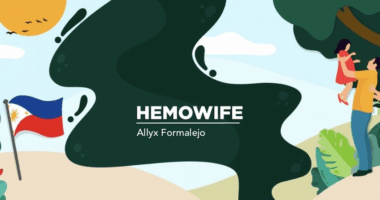The ‘Crab Mentality’ Makes the Struggle for Equality Difficult

I am a staunch advocate of equality. From a very young age, I was taught that all people are valuable, regardless of their race, ethnicity, social status, gender, or health status. I was brought up to believe that human beings have certain immutable and inviolable rights.
Eventually, I learned about privilege. I learned that some people live in better conditions than others because they have access to opportunities that other people don’t. In an ideal world, governments exist to provide support to the disadvantaged, including women, children, minorities, and people with disabilities (PwD). Yet in reality, solutions to the problems disadvantaged groups face are still far from attainable.
When I met my husband, Jared, who has hemophilia, I was just starting to consider the possibility that I was struggling mentally. I had not formally sought help, but I did feel that something was off. I also feared the stigma against mental illness here in the Philippines, so I didn’t want to talk about it with just anyone.
Jared and I bonded over midnight discussions about our lives, the human mind, and the human condition. As a person with chronic illness, Jared had his own experiences with depression. It felt wonderful to have found a kindred spirit — someone I could talk to about life’s inequalities who actually understood.
It soothed our souls to know we had each found someone to confide in about our life struggles. When we got married, we finally felt confident we could “struggle together.”
But the struggle has been far from simple. Now and then, we are bogged down by disappointments. Surprisingly, the heaviest of these disappointments sometimes comes from within our own support system.
Jared tells me he has felt discriminated against, even by people close to him. These people may not realize they have been conditioned to think of PwDs as patients before humans. In effect, they fail to see that people with disabilities are human beings with feelings and the need to reach self-actualization.
According to Maslow’s hierarchy of needs, a theory in psychology, people’s needs are categorized as five levels of a pyramid. The bottom tier includes basic needs, such as food and shelter, and the topmost tier involves self-actualization (being all that one can be) and transcendence (being motivated by values that extend beyond the self). Maslow theorized that most lower-tier needs must be fulfilled before a human being can fulfill the higher-tier needs.
People who have reached the level of self-actualization are able to live out their most authentic values and be highly creative. They feel satisfied with their lives.
Most people want to achieve self-actualization in order to feel fulfilled. But many people with disabilities fear that self-actualization will always remain a pipe dream. If their basic needs cannot be met, how can they achieve self-fulfillment?
I relate to Jared’s struggle with self-fulfillment because I experience a similar challenge in my own communities. As a woman, I feel barred from reaching my fullest potential because I don’t always feel safe.
It gets much worse when the women I talk to for support become the reason I feel unsafe. A similar scenario has occurred in my mental illness community when people sought out for warmth and comfort became abusive.
Such inconsistencies within the community can be dangerous. Instead of working together to meet basic needs, people end up pulling each other down like crabs, which is sometimes referred to as the “crab mentality,” based on the group behavior of those crustaceans.
No support system is perfect, but we truly hope that everyone in our respective communities can reorient themselves toward a shared goal of equality and empowerment. We pray people don’t lose sight of what they are struggling for. That way, we can all focus on the things that really matter.
***
Note: Hemophilia News Today is strictly a news and information website about the disease. It does not provide medical advice, diagnosis, or treatment. This content is not intended to be a substitute for professional medical advice, diagnosis, or treatment. Always seek the advice of your physician or another qualified health provider with any questions you may have regarding a medical condition. Never disregard professional medical advice or delay in seeking it because of something you have read on this website. The opinions expressed in this column are not those of Hemophilia News Today or its parent company, Bionews, and are intended to spark discussion about issues pertaining to hemophilia.







Leave a comment
Fill in the required fields to post. Your email address will not be published.